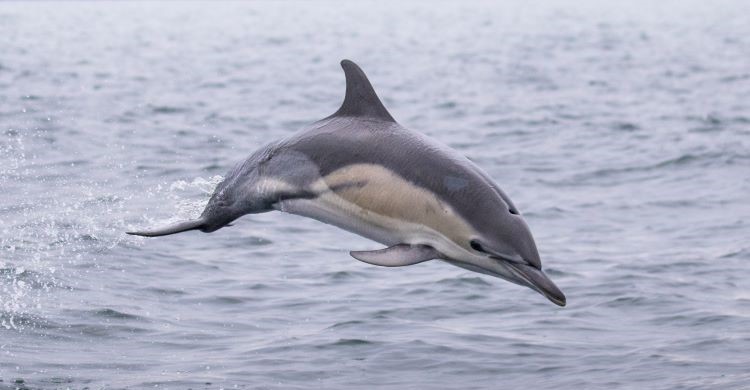Workshop to recommend small cetacean conservation objectives in relation to anthropogenic removals - Part 2

Common dolphin by Josh Wilson of AK Wildlife Cruises Falmouth | @oshuwilson
ASCOBANS set a conservation objective for small cetaceans based upon a consideration of the vital rates observed in the harbour porpoise (see Resolution 8.5 (Rev.MOP9)). A management threshold of 1.7% of the population size of the harbour porpoise was proposed (with a precautionary threshold of 1%), applying a conservation objective set at 80% of carrying capacity with a 95% probability over an unspecified but more or less infinite time period. In other fora, slightly different conservation objectives have been set. Under the US Marine Mammal Protection Act, the conservation objective is to maintain the population at 50% of carrying capacity for 95% of cases over a temporal window of 100 years, whilst the Catch Limit Algorithm (CLA) applied as part of the IWC ’s Revised Management Procedure, is tuned to a median of 72% of carrying capacity for 50% of cases, also over 100 years to maximise and maintain stability of catches while minimising the risk of depletion.
The applicability of these different approaches to small cetaceans within the ASCOBANS Agreement Area needs assessing to decide an appropriate precautionary, yet practical, conservation objective. Furthermore, the setting of management thresholds above which anthropogenic removals are considered to risk the sustainability of populations needs considering not only for harbour porpoise but also other small cetacean species.
Since plans were made for the Second Workshop on ‘Unacceptable Interactions’ in 2017, things have progressed, and its original Terms of Reference are now outdated. An expert workshop is needed to provide best scientific advice in order to reach a decision on a general conservation objective for small cetaceans, and recommendations for how management thresholds should be set for different small cetacean species/species groups.
The workshop will be held in two parts:
- Part 1 is a small technical (online) session primarily comprising experts who have been directly involved in defining conservation objectives in relation to bycatch. This will take place on 24-25 April 2023.
- Part 2 is a wider workshop, taking conclusions and recommendations from Part 1 into a wider debate. The workshop will be held on 16-17 May 2023 at the UN Campus in Bonn. Remote participation is possible.
Participation is by invitation only. For any questions, please contant Jenny Renell at the ASCOBANS Secretariat.
| Dates | 16 May 2023 14:00 to 17 May 2023 18:00 |
|---|---|
| Registration Deadline | 16/04/2023 |
| Organizer | ASCOBANS |
| CMS Instrument | ASCOBANS |
| Type | Workshop |
| Kind | Official |
| Status | Concluded |
| Languages | English |
| Country | Germany |
| City | Bonn |
| Venue | Langer Eugen, UN Campus |
| Number | Title | Files |
|---|---|---|
| Provisional Agenda |
| Number | Title | Files |
|---|---|---|
| Information for Participants |
| Number | Title | Files |
|---|---|---|
| ASCOBANS/CO2/Pres.2 | Approaches used in the OSPAR Region of Europe for Setting Limits to Removals | |
| ASCOBANS/CO2/Pres.4 | Quantifying ASCOBANS Conservation Objective: A Way Forward | |
| ASCOBANS/CO2/Pres.1 | ASCOBANS Conservation Objectives |



